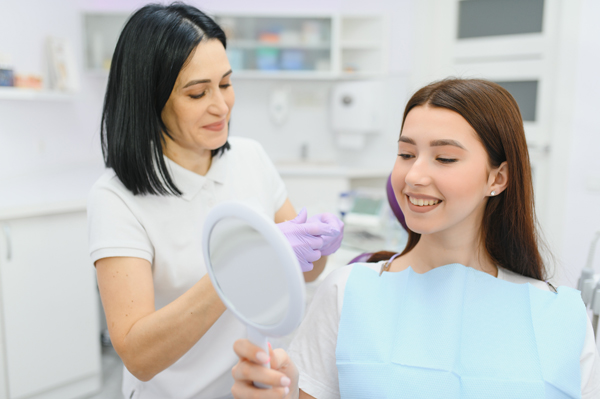General Dentistry Quick Guide for Tooth Extraction Aftercare

General dentistry refers to all routine procedures and care that is done to help individuals maintain good oral health. One procedure that unfortunately happens to be routine is tooth extraction. Extractions are needed when a general dentist determines that a tooth is too unhealthy to remain in the mouth. Of course, some require extraction due to spacing issues too. Keep reading to find out more about aftercare once the extraction has been performed.
What to do after a tooth extraction
Outlined below are a few tips from a general dentistry practice on what to do after tooth extraction. This guide can be used as a resource for individuals who are preparing for extraction as it can be helpful to know what to expect afterward.
1. Avoid certain foods and beverages
Immediately after tooth extraction, it is important to avoid certain foods and beverages. General dentistry already recommends avoiding heavily acidic or sugar-based items because they can cause cavities. However, this is especially important after extraction as the mouth is more susceptible to infection.
Additionally, to avoid discomfort or irritation to the healing site, general dentists recommend consuming foods that are extremely soft, such as mashed potatoes, soup, smoothies, or apple sauce.
2. Gently rinse with saltwater
Saltwater is a safe and alcohol-free way to rinse the oral cavity without hurting the site where the tooth was extracted. The salt kills any bacteria that can build up during the healing process. General dentists recommend gently rinsing three to four times a day after tooth extraction for 30 seconds. It is advised to avoid mouthwashes immediately after tooth extraction as they contain alcohol, which can irritate the area.
3. Take an over-the-counter medication
Over-the-counter medications are great to take after tooth extraction. General dentists recommend these as they can help reduce discomfort, inflammation, and swelling. It is key to take them in moderation and to follow the direction of the dentist, which will likely include taking them with a heavy liquid or soft food.
4. Keep an eye on the wound
Another important thing to consider is the actual wound that is left from the tooth extraction. Although the reason for an extraction is to get rid of a bad tooth, the actual procedure can be grueling on the gums and surrounding areas of the mouth. It is necessary to just keep an eye on the wound to ensure that there is no excess bleeding or swelling, which could mean a different problem. Any signs that seem abnormal should be noted and addressed by a general dentist.
Talk to a general dentist
After undergoing a tooth extraction, it can always be helpful to consult with a general dentist. Any questions or concerns about what is involved during and after an extraction can be appropriately addressed. Additionally, if an evaluation or follow-up is required, general dentistry practices are the best resources to utilize. To find out more about extractions or how a general dentist can help, reach out today.
Request an appointment here: https://www.drcranedental.com or call T. Kirk Crane, DDS at (337) 205-9565 for an appointment in our Lafayette office.
Check out what others are saying about our dental services on Yelp: General Dentistry in Lafayette, LA.
Related Posts
General dentistry is responsible for addressing all routine things relating to the teeth, including damage that occurs. Teeth become damaged as a result of many things, such as injury, accidents, natural wear and tear, or cavities. Whatever the reasoning may be for a damaged tooth, there are a lot of treatment options available in general…
Advancements in dental technology have revolutionized patient care, and one such innovation is the 3D dental scan. These 3D dental scans transform how dental professionals diagnose and treat oral health issues. Patients should know the importance of 3D dental scans, their impact on modern dentistry, and how they can positively affect their dental health.A 3D…
Getting tooth implants is not the final phase of an implant restoration procedure. The stage is simple, but the recovery period can be uncomfortable. This part of the implant process is the time for the mouth heals and fuses to the implant post. The following guide covers what to expect during recovery and the steps…
A dental implant provides a stable base for a natural-looking tooth replacement. This proactive solution fills gaps in the smile and maintains a healthy jaw. Respectively, the bite remains aligned, preserving the natural shape of the face. Thanks to dental implants, patients can enjoy a stable and beautiful smile that lasts.The most noticeable impact of…
